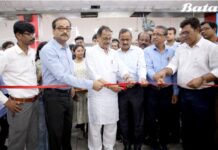FKCCI welcomes the emphasis on:
· better infrastructure
· security
· Providing Amenities and Hygenic Conditions both in trains and Stations
FKCCI also welcomes the announcement of increased fares, though marginal. It also welcomes the idea of fare neutralization with fuel price changes (increase or decrease) to be implemented in future.
Regarding Karnataka,
FKCCI welcomes:
· Proposal to establish new Coach factory at Kolar
FKCCI welcomes:
· Plans to modernize 19,000 Kms of route which handles about 80% of traffic.
· To improve the signaling system
· Pre accident warning-system in 3000 Kms stretch as a beginning
· To improve the infrastructure to increase the travel speed to 160Kms per hour.
· Establishing of high speed freight and passenger corridors
· Introduction of 6 new trains from Karnataka
· Formation of committees to look after safety
While welcoming the Indian Railway Station Development Corporation for bettering the Railway stations, FKCCI is apprehensive of scope for more unwarranted administrative expenses.
FKCCI, however, is unhappy that:
· No completion date is set for the 13 projects that are being executed with the Karnataka State Government , ( Annexure 18 of the budget speech)
· No mention is made about the Hubli-Ankola line.
FKCCI is also worried that:
· Many of the existing 487 projects of : line doubling, gauge conversion, electrification, etc are still not completed.
FKCCI is also worried about:
· Implementation of the PPP projects in the context of land acquisition and other strategic requirement.
· To get the extra budgetary support in the context of slowing down of the economy and the increasing risk of fiscal deficit
FKCCI sums up, that though the budget is a welcome new direction, it is still not very clear of the finance plan and its dependence on budgetary support could be a hindering point.
J.R.Bangera































